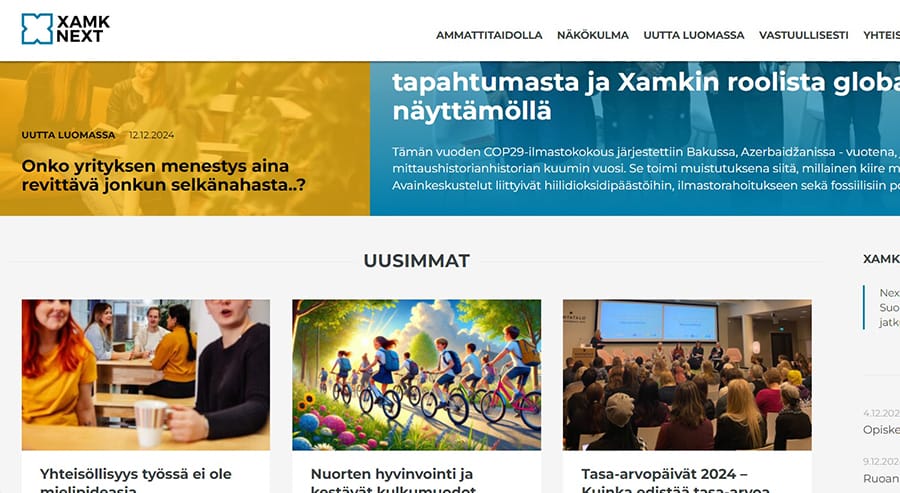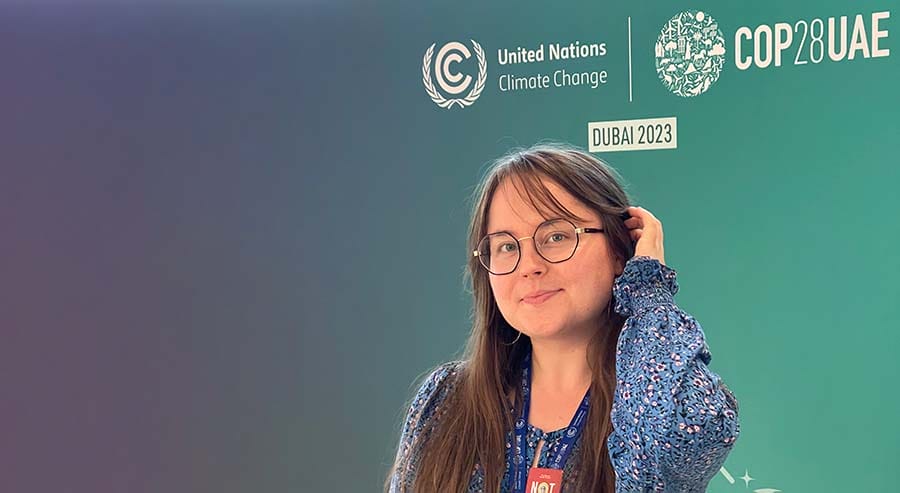Did the UN Climate Conference deliver? Reflections from a Xamk Delegate
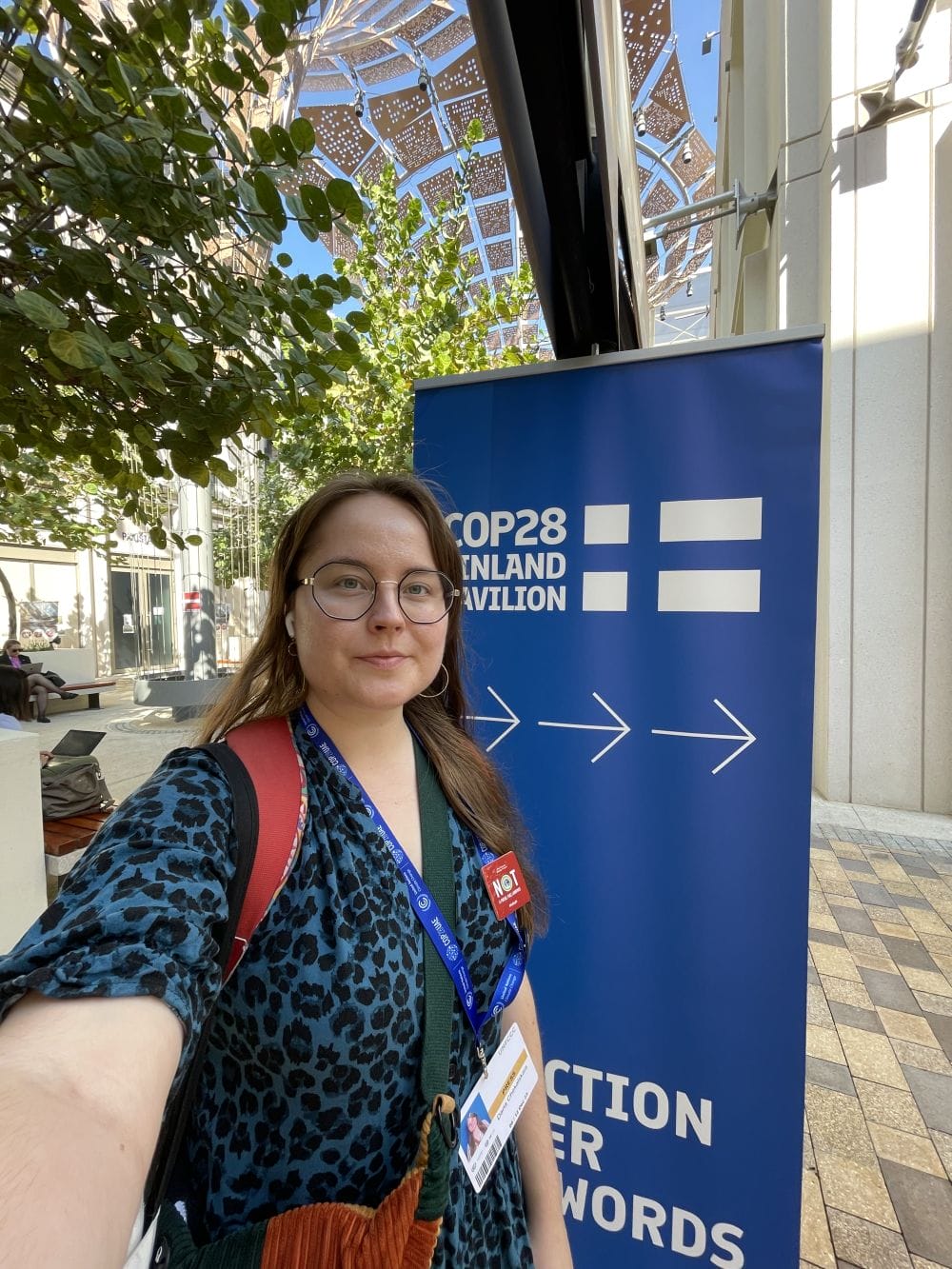 Despite the urgent context, the discussions once again revolved around whether to phase out or phase down fossil fuels—the main contributors to the crisis.
Despite the urgent context, the discussions once again revolved around whether to phase out or phase down fossil fuels—the main contributors to the crisis.
At the COP28 conference in Dubai, I represented the South-Eastern Finland University of Applied Sciences. As an Environmental Engineering graduate from Xamk, I’m passionate about sustainability and climate justice.
My current job focuses on lifelong learning, which helps us to use education as a tool to achieve Sustainable Development Goals.
At COP28, I worked with others to make sure governments take action on these important issues. Let’s explore the outcomes of this year.
Main outcomes of COP28 in case you missed it
This year’s key topics included a global stocktake, assessment of country actions, the role of fossil fuels, and climate action financing.
The agreement to transition away from fossil fuels by 2050 was a milestone in UN negotiations, signalling an end to the fossil fuel era. However, the agreement’s language lacked the decisiveness many desired, especially for developing countries and civil society who advocated for a more definitive fossil fuel phase-out.
Significant financial commitments were made, including the establishment of a fund to address climate change losses, starting with an $800 million pledge. Finland contributed 3 million euros to this fund. Yet, these efforts still fall short of the actual financial needs.
Key commitments included
- increasing renewable energy capacity
- improving global energy efficiency
- phasing out fossil fuel subsidies not aimed at combating social and economic inequality
- reducing methane emissions and
- developing national climate adaptation plans.
In the negotiation rooms, a positive development was that a group of 12 countries, including Finland, released a statement on phasing out fossil-fuel subsidies, aiming for transparency and international cooperation to eliminate these subsidies.
Finland’s role in the fight against climate change
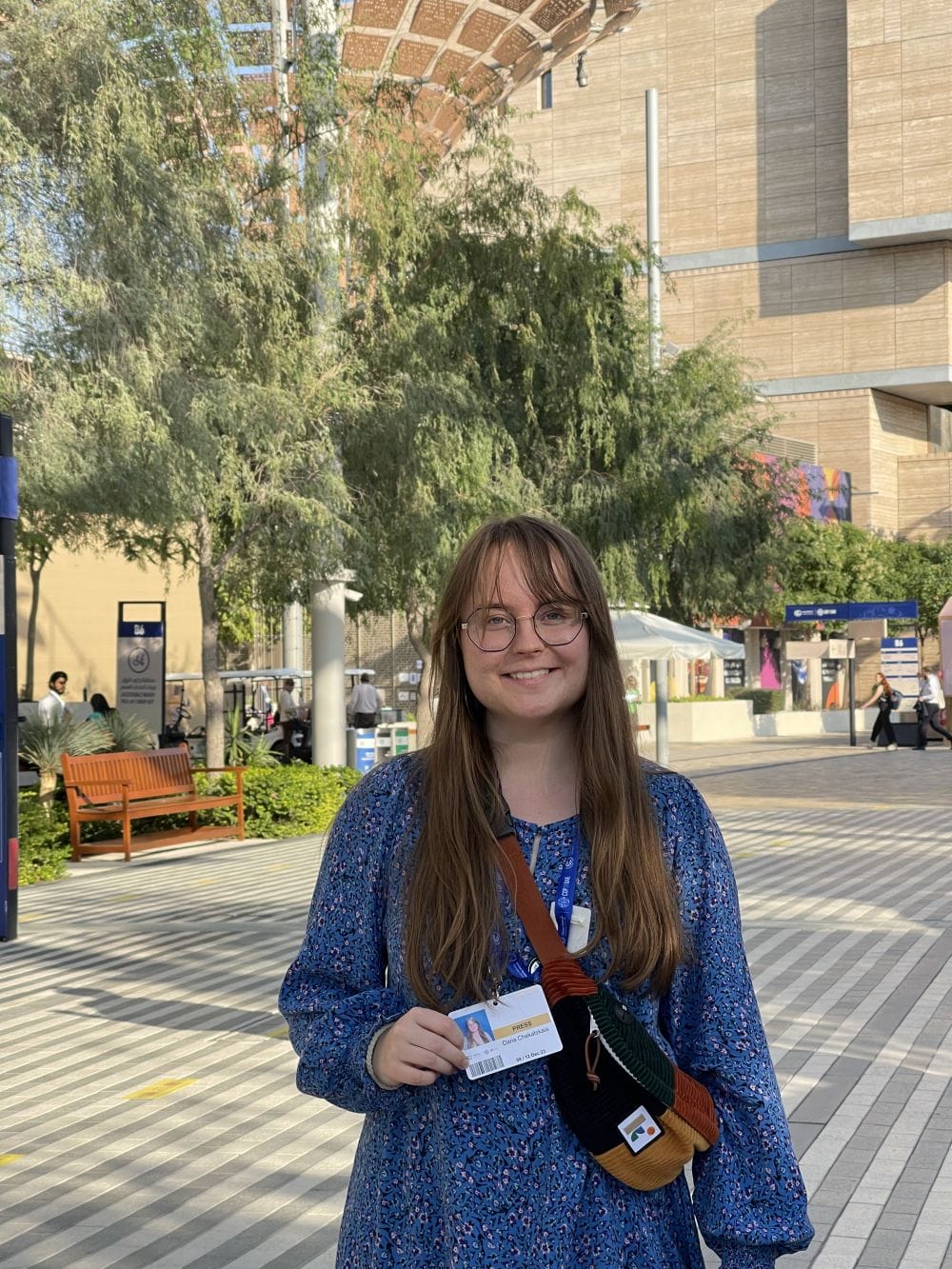 Finland has set an ambitious target of becoming carbon neutral by 2035. The question remains: will the new government uphold this commitment?
Finland has set an ambitious target of becoming carbon neutral by 2035. The question remains: will the new government uphold this commitment?
At COP28, Finland’s presence was significant, with the country hosting its first-ever pavilion and demonstrating a strong commitment to climate action and sustainability.
Led by Kai Mykkänen, the Finnish Minister for Climate and the Environment, the Finnish delegation, consisting of around 50 members and 26 partner companies, actively participated in over 70 presentations and discussions.
The trends observed from these sessions included a focus on technological innovation, sustainable industrial practices, digital transformation for environmental benefits, and the integration of traditional knowledge into climate policy.
Topics ranged from urban planning with sustainable materials, the role of environmental economics in systemic change, innovative solutions from Finnish companies, and discussions on the decarbonization of heavy industries.
Digital transformation as a tool for decarbonization, sustainable logistics, and the role of green steel in the industry were also highlighted.
Notably, Finland’s expertise in nuclear energy and its role in climate change mitigation was a significant topic of discussion.
Youth participation and how it could be improved
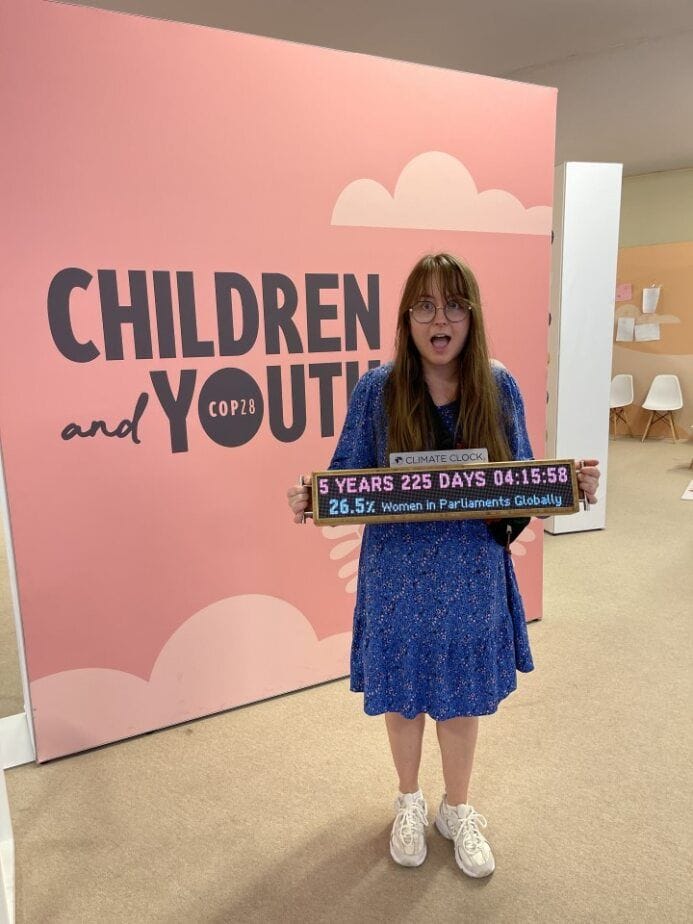 Young people were at the core of the conference, with a Youth Day featured during COP28. The Youth Pavilion hosted many engaging events.
Young people were at the core of the conference, with a Youth Day featured during COP28. The Youth Pavilion hosted many engaging events.
Youth engagement is essential for climate justice. There were numerous protests on human rights and climate ambition. Young people are passionate and can drive innovation, which is crucial for climate ambition.
Finland also had a Finnish Youth Delegation who led pavilion events, side events, and had a stand in the negotiation rooms, consisting of Akseli Rouvari and Hanna Höijer.
One of the pre-COP28 initiatives by young people, the ”Youth Stocktake on UNFCCC Processes,” offers an in-depth review from the youth perspective on the effectiveness of the United Nations Framework Convention on Climate Change (UNFCCC).
Key outcomes include the necessity for better data accessibility, institutionalized youth participation, and streamlined fundraising for climate action.
For Finnish Universities of Applied Sciences, these findings offer a direction in which the research on youth engagement and inclusion can develop as well as how to support student involvement in global climate dialogues and research in international relations and environmental policy.
Where could Xamk stand?
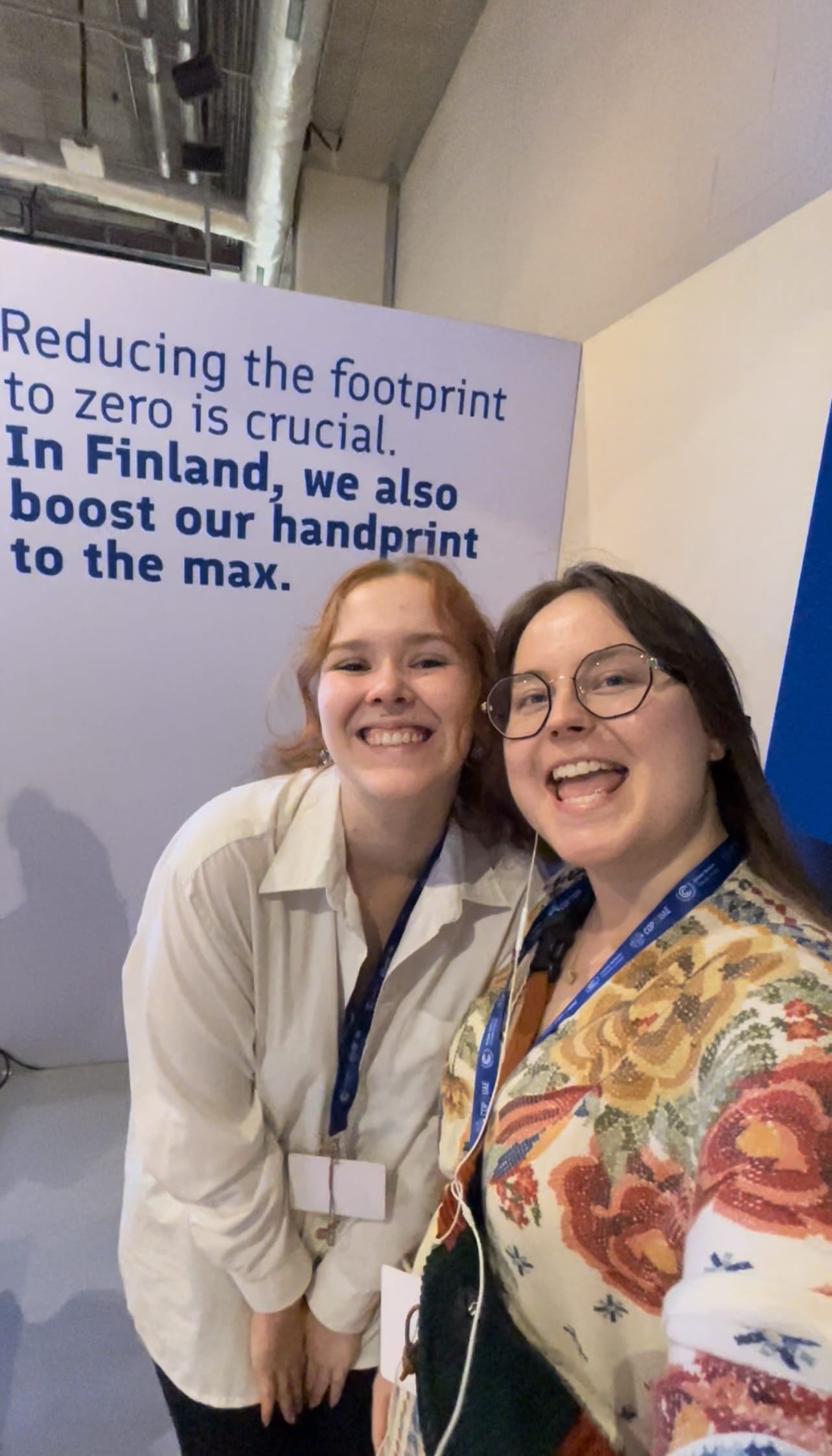 COP28 underscored the critical role of education in climate action. The conference highlighted the necessity of integrating climate change into educational curricula and promoting awareness at all levels.
COP28 underscored the critical role of education in climate action. The conference highlighted the necessity of integrating climate change into educational curricula and promoting awareness at all levels.
As an educational institution, Xamk’s role in disseminating knowledge and fostering climate literacy aligns perfectly with these global educational goals. Our research projects on sustainability and European partnerships such as Ingenium can be perfect platforms for implementing globally mandated climate ambitions.
Many developing countries view Finland as a country with a high level of expertise, particularly interested in everything related to education and training. Higher education institutions are the engines of Finnish expertise. Could Xamk deliver it?
Conclusions
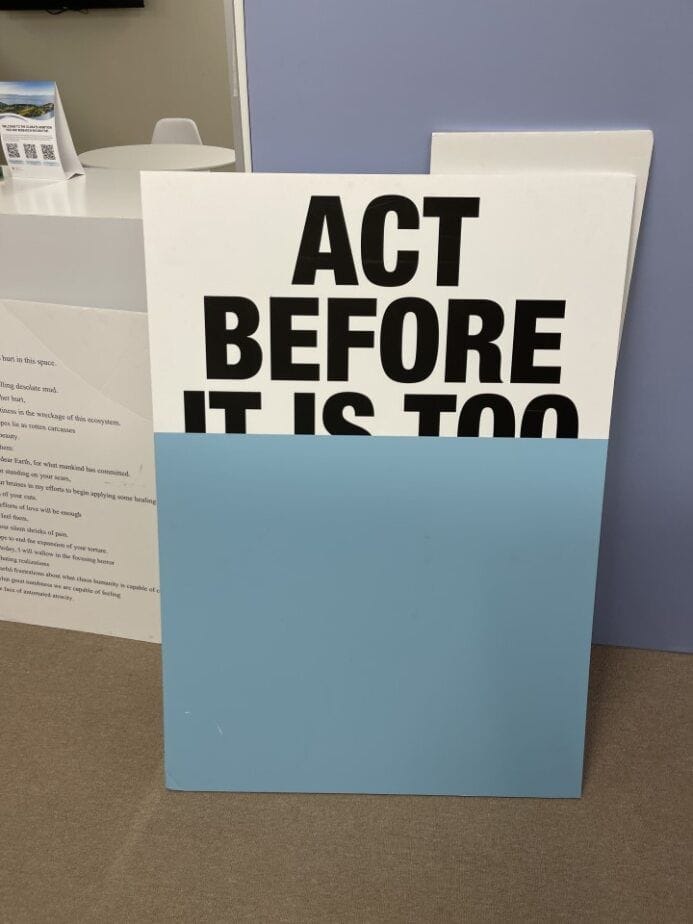
Inspiration: 100,000 participants. Could the conference have been a Teams call? I don’t think so. It became a platform for showcasing what we’ve got against climate change. Imagine being surrounded by 97 thousand (because 3 thousand were oil lobbyists) people who share your passion and dedicate their lives and careers to our common goal.
Tool: One of the most impactful experiences at COP28 was the ”AgroAdapt: Cultivate the Future” workshop hosted in the Finnish pavilion. This innovative simulation game, developed by the Food and Agriculture Organisation (FAO), uses real data and scenarios to engage stakeholders in climate-resilient decision-making for the agri-food system.
Bringing this simulation game to Xamk offers an exciting opportunity for students and faculty to engage directly with practical tools for climate action.
Message: Actions over words were the motto of the first-ever Finnish pavilion at this global conference. It sticks with me as I come back to my work.
Where to find Hope? I found one standing in line for one of the plenaries – I met journalists from YLE who are creating a documentary on HOPE. It will be out next autumn, and I hope it will not be too late for it…
In conclusion, COP28 was a significant step, yet it also highlighted the vast amount of work still required to effectively address the climate crisis.
As a representative of Xamk, I return with renewed inspiration and a deepened understanding of the complexities of global climate negotiations, along with practical tools and insights to share with the university community.
I am also grateful that Xamk as a workplace shares these values and empowers staff to develop professionally in the fields they are passionate about. If you have something related to climate to discuss, please reach out.

